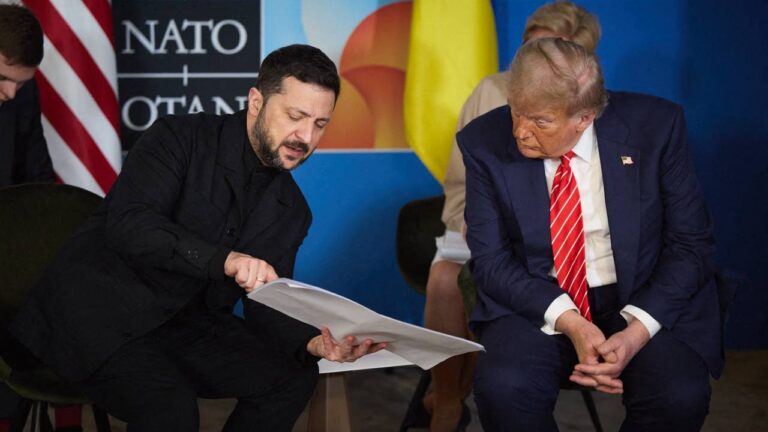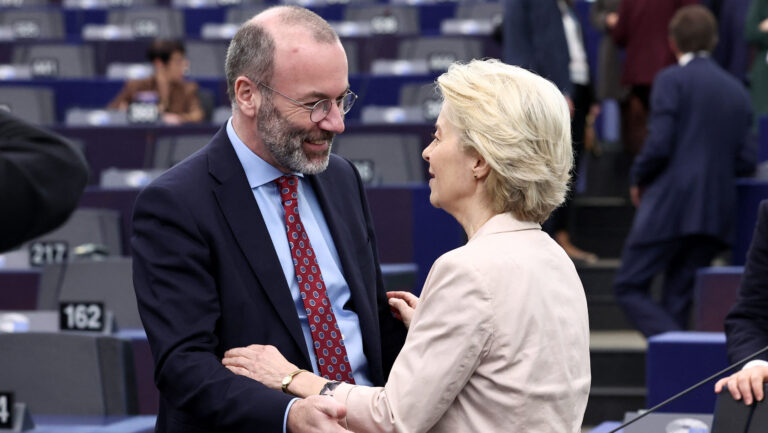‘Let China sleep, for when she wakes, she will shake the world.’ Hungarian Prime Minister Viktor Orbán used this quote, attributed to Napoleon, to begin his speech at the 2023 Tusványos festival in Transylvania with a byline of ‘A Time for Peace’. However, it comes at a time when Hungary’s allies are also speaking of China’s awakening in anything but peaceful terms.
The 2022 US National Security Strategy describes China as a nation using technology, international influence, and economic power to ‘coerce countries and ‘create more permissive conditions for its own authoritarian model.’[1] NATO, meanwhile, maintains that China’s ‘stated ambitions and coercive policies’ are a threat to their ‘interests, security, and values.’[2] The alliance explicitly warned that the Belt and Road Initiative (BRI) and China’s ‘related foreign policies pose a challenge to Western values’ and that ‘good commercial sense…cannot be divorced from the wider geopolitical context.’[3]
Even the European Union admits that relations with China ‘have deteriorated, notably related to a growing number of irritants’ including human rights, economic coercion, hostile trade measures, and differing positions on the Ukraine War.[4] Yet at the same time, Hungary under Orbán is pursuing a policy of ‘Opening to the East’ that has led to what Chinese Foreign Affairs Director, Wang Yi, calls the ‘best period in history’ for Hungarian-Chinese relations’.[5]
In fairness, to say that Washington, Brussels, and Budapest have some pre-existing policy disagreements is a laughable understatement. Nonetheless, the question remains: Why is Hungary growing closer to China as the West grows further away?
The short answer is: it’s complicated. It stems from several factors highlighting Hungary’s unique political perspective. Beginning with the most obvious,
Hungary’s warm relations with China have netted substantial gains for the Hungarian economy, trade, and infrastructure.
The critical example of this is Hungary’s participation in the BRI. As the US and Western Europe increasingly deter Chinese investment, Hungary’s importance in China’s BRI plans continues to grow, and with it the benefits the country can expect from it. Hungary will be an important hub for the planned Budapest–Belgrade railway intended to bring goods from the Chinese-owned port of Piraeus to the rest of Europe.[6] Just this year, China also signed an agreement with Hungary to build a 100,000 square metre European logistics hub in Budapest that will serve to warehouse, distribute, consolidate, bundle, and re-export some four million tonnes of goods per year.[7] China is currently Hungary’s largest trading partner besides the EU and became Hungary’s number one investor in early 2023. Chinese investments this year are set to double last year’s, totalling 13 billion euros, most of which is tied to the construction of a new battery factory in the country by the Chinese company Contemporary Amperex Technology Co. Ltd. The factory is on track to partner with several automakers already in Hungary such as Mercedes Benz, BMW, and Volkswagen.[8] Hungary has also continued doing business with Chinese telecom company Huawei in rejection of the US-led Clean Network initiative. As a result, despite warnings of security risks, Hungary is becoming a regional leader in 5G, telecommunications, and digitalisation.
At the same time, Hungary is partnering with China on education initiatives to promote research and innovation in 5G and other emerging technologies.[9] Even as far back as 2019, the Hungarian and Chinese Prime Ministers signed a bilateral agreement establishing a barrier-free trade task force and promoting Hungarian exports to China.[10] In short,
Chinese investment has provided vital economic growth and infrastructure modernisation to Hungary in the past decade
and Budapest relies on continuing this involvement to a degree that Washington and Brussels do not.
Complicating the matter further is the sum of 22 billion euros in the EU Cohesion Fund being held back from Hungary over disputes surrounding ‘judiciary independence, academic freedoms, LGBTQI rights and the asylum system.’[11] In May, EU lawmakers visited Hungary to observe progress on addressing their concerns, which they lauded, but maintained that the country was still not ready to receive the frozen funds.[12] The Orbán government has, in turn, derided the rift caused by weaponizing common funding for a social agenda that the Hungarian government and many Hungarians disagree with.
In his speech at Tusványos, the Prime Minister specifically pointed to similar pressures by the US and EU over certain laws in Lithuania, stating his concern that ‘that is where American friendship leads to.’ Regardless of one’s perspective on the issues at hand, the fact is that this rift is leading Hungary towards other sources of funding, and China is a natural source. Hungarian Economic Development Minister Márton Nagy recently stated that in light of the holdup, ‘the Hungarian economy will have to make the transition to an existence without EU funding’ and, when asked about alternatives, stated, ‘in terms of impact, FDI (Foreign Direct Investment) is better.’[13] Thus, in addition to receiving increased Chinese investment due to greater European hesitancy,
Hungary is also growing more receptive to replacing EU funds with Chinese funds
because it sees the latter as having fewer strings attached.
However, raw economic data and Realpolitik still fail to fully explain Hungary’s divergence. A much deeper reason stems from the Orbán government’s view of global affairs and Hungary’s position in them. While it is easy to wonder if disagreeing with the apparent Western consensus is simply part of Viktor Orbán’s political brand (and to some extent, it is), the truth is more involved. To be sure, Budapest takes pride in the mantra that it ‘shall not accept any kind of external ideological pressure’ in pursuing national policy interests.[14] But there is something larger at play, and Orbán’s ‘A Time for Peace’ speech highlights it perfectly. In it, he expressed concern that ‘day by day, we are moving towards a clash in world politics’ and believed that ‘the big powers should accept that there are two suns in the sky.’[15] His belief is that ‘[American] dominance seems to be lost,’ and that history shows that
collision is likely unless the US and China can cooperate in recognising each other as equal actors
in spite of the shifting balance of power.
Hungary does not only deal with both the West and East for its own national benefit, though it certainly plays a large role, but also because it sees a bipolar world taking shape that it wants to be right in the middle of. This is also evident in its continued outreach towards Russia, Turkey, and Central Asia amidst the growing global divide. In this light, Eric Hendricks, a visiting fellow at Budapest’s Danube Institute, put it best: ‘Hungary is trying to make itself the centre of something.’ What that is, even he could not say. In any case though, time will tell if Hungary’s strategic bilateralism, highlighted by its relations with China, proves a prescient policy.
[1] National Security Strategy, The White House (October 2022), https://www.whitehouse.gov/wp-content/uploads/2022/10/Biden-Harris-Administrations-National-Security-Strategy-10.2022.pdf, accessed 2 August 2023.
[2] North Atlantic Treaty Organization, NATO 2022 Strategic Concept, Nato.int (June 2022), https://www.nato.int/strategic-concept/, accessed 1 August 2023.
[3] Christian Tybring-Gjedde, ‘China’s Belt and Road Initiative: A Strategic and Economic Assessment’, NATO Parliament Assembly (15 October 2020), https://www.nato-pa.int/download-file?filename=%2Fsites%2Fdefault%2Ffiles%2F2020-11%2F033%20ESC%2020%20E%20rev.1%20-%20REVISED%20DRAFT%20REPORT%20-%20CHINA%20BRI%20A%20STRATEGIC%20AND%20ECONOMIC%20ASSESSMENT.pdf, accessed 2 August 2023.
[4] European Union External Action, ‘EU-China Relations Fact Sheet,’ European Union External Action 4 January 2022), https://www.eeas.europa.eu/eeas/eu-china-relations-factsheet_en, accessed 1 August 2023.
[5] The Editors, ‘Hungary is Becoming More Important to China,’ The Economist (24 May 2023), https://www.economist.com/china/2023/05/24/hungary-is-becoming-more-important-to-china, accessed 1 August 2023.
[6] Gabriela Greilinger, ‘China’s Growing Foothold in Hungary,’ The Diplomat (27 Feb. 2023), https://thediplomat.com/2023/02/chinas-growing-foothold-in-hungary/, accessed 1 August 2023.
[7] ‘China and Hungary Join Forces to Develop a New Logistics Center,” Railway Supply, April 24, 2023, https://www.railway.supply/en/china-and-hungary-join-forces-to-develop-a-new-logistics-center/.
[8] Karen Gilchrist, ‘China Decoupling would be ‘Suicide’ for Europe, Hungary’s Foreign Minister says,’ CNBC (27 June 2023), https://www.cnbc.com/2023/06/27/china-decoupling-would-be-suicide-for-europe-hungarys-pter-szijjrt.html, accessed 2 August 2023.
[9] Ádám Bráder, ‘Hungary at the Forefront of Digitalisation’, Hungarian Conservative (15 May 2023), https://www.hungarianconservative.com/articles/current/digitalisation_hungary_huawei_china_agreement_nke_scholarship/, accessed 1 August 2023.
[10] Cabinet Office of the Prime Minister, ‘The Belt and Road Initiative Coincides with Hungarian National Interests,’ miniszterelnok.hu (25 April 2019), https://2015-2022.miniszterelnok.hu/the-belt-and-road-initiative-coincides-with-hungarian-national-interests/, accessed 1 August 2023.
[11] Kate Abnett and Jan Strupczewski, ‘EU holds back all of Hungary’s Cohesion Funds over Rights Concerns’, Reuters (22 December 2022), https://www.reuters.com/world/europe/eu-holds-back-all-hungarys-cohesion-funds-over-rights-concerns-2022-12-22/, accessed 2 August 2023.
[12] Gregorio Sorgi, ‘EU Lawmakers say Hungary is Not Ready for Frozen EU Funds,’ POLITICO (17 May 2023), https://www.politico.eu/article/eu-lawmakers-say-hungary-is-not-ready-for-frozen-eu-funds/, accessed 1 August 2023.
[13] Charles Szumski, ‘Hungary Looks for Alternatives to Frozen EU Funding,’ Euractiv (7 June 2023), https://www.euractiv.com/section/politics/news/hungary-looks-for-alternatives-to-frozen-eu-funding/, accessed 1 August 2023.
[14] Cabinet Office of the Prime Minister, ‘BRI Coincides With Hungarian National Interests’.
[15] Magyar Nemzet, ‘PM Orban: We’re in a Dangerous Position as the Number One Superpower Senses its Slide into Second Place + Video,’ Magyarnemzet.hu (22 July 2023), https://magyarnemzet.hu/english/2023/07/pm-orban-were-in-a-dangerous-position-as-the-number-one-superpower-senses-its-slide-into-second-place-video, accessed 23 July 2023.








